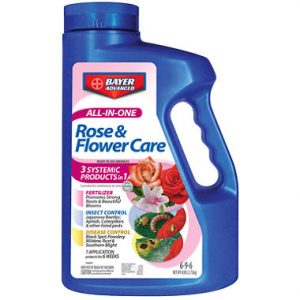26
Oct
Massachusetts Attorney General Stops Deceptive Safety Claims about Bee-Toxic Pesticides, Beyond Pesticides Urges Other States to Follow
(Washington, D.C. October 26, 2016) With the Massachusetts Attorney General forcing Bayer CropScience to end its statewide advertising containing deceptive safety claims about bee-toxic pesticides, Beyond Pesticides yesterday asked the other 49 states to do the same. In a letter to State Attorneys General, Beyond Pesticides said, “With neonicotinoid (neonic) insecticides linked to the increase in pollinator decline, we are writing to urge you, on behalf of our members in your state, to stop misleading and fraudulent advertising of these pesticide products.”
 Beyond Pesticides continues, “We make this request following the settlement reached by Massachusetts Attorney General Maura Healy with Bayer CropScience, announced today, that ends the company’s deceptive advertising practices on their neonicotinoid-containing lawn and garden products.”
Beyond Pesticides continues, “We make this request following the settlement reached by Massachusetts Attorney General Maura Healy with Bayer CropScience, announced today, that ends the company’s deceptive advertising practices on their neonicotinoid-containing lawn and garden products.”
Bayer agreed to change its advertising practices, so that the neonic-containing lawn and garden products are no longer misrepresented by false safety claims. This landmark settlement, filed under the state’s Consumer Protection Act, is believed to be the first time any major pesticide company has agreed to a court order to address alleged false advertising regarding risks posed by neonic products to honey and native bees, and other pollinator species. The lawn and garden products subject to the settlement, which include Bayer Advanced ® All-in-One Rose and Flower Care, Bayer Advanced ® 12 Month Tree & Shrub Protect and Feed II, and Bayer Advanced ® Season Long Grub Control Plus Turf Revitalizer, contain the active ingredients imidacloprid and/or clothianidin, both neonics.
In addition, according to the Massachusetts AG, Bayer is paying the Commonwealth $75,000 to settle these claims against the company. Attorney General Healy stated that, “This company was misleading consumers with deceptive claims, including falsely advertising its products as akin to giving ”˜a daily vitamin’ to plants, when, in fact, the pesticides are highly toxic to honey bees and other pollinators in the environment. This groundbreaking settlement will promote truth in advertising for consumer products that expose bees to harmful pesticides and will increase awareness about the risks these pesticides pose to bees and other pollinators essential for food production.”
Neonics are a class of insecticides with a common mode of action that affects the central nervous system of insects. There is extensive evidence that neonic pesticides play a major role in recent pollinator declines. Neonics decrease learning, foraging and navigational ability of bees, as well as increase their vulnerability to pathogens and parasites as a result of the suppression of bee immune systems. In addition to toxicity to bees, neonics have been shown to also adversely affect birds, aquatic organisms, and biodiversity, while contaminating soil and waterways. They are persistent in the environment and, because they are systemic, translocate throughout the plant and are expressed in the pollen, nectar, and guttation droplets, causing indiscriminate poisoning of wildlife.
Given the shortcomings in federal oversight of misleading labeling claims and the use of neonicotinoids, Beyond Pesticides asked State Attorney General offices take action to mitigate these concerns. With growing concerns surrounding the detrimental role that neonics have on pollinator health, we applaud the actions taken by the Massachusetts Attorney General and urge other states to assess the pesticide labeling practices and take appropriate action. Farm, beekeeper, and environmental groups, including Beyond Pesticides, have urged EPA to follow the lead of the European Union and restrict neonics.
Download a copy of the letter here: http://bit.ly/NeonicAGLetter.
See a copy of our press release here.
Read the Massachusetts Attorney General’s press release here.
See the science on neonicotinoids and other efforts to protect pollinators from pesticides.
All unattributed positions and opinions in this piece are those of Beyond Pesticides.










